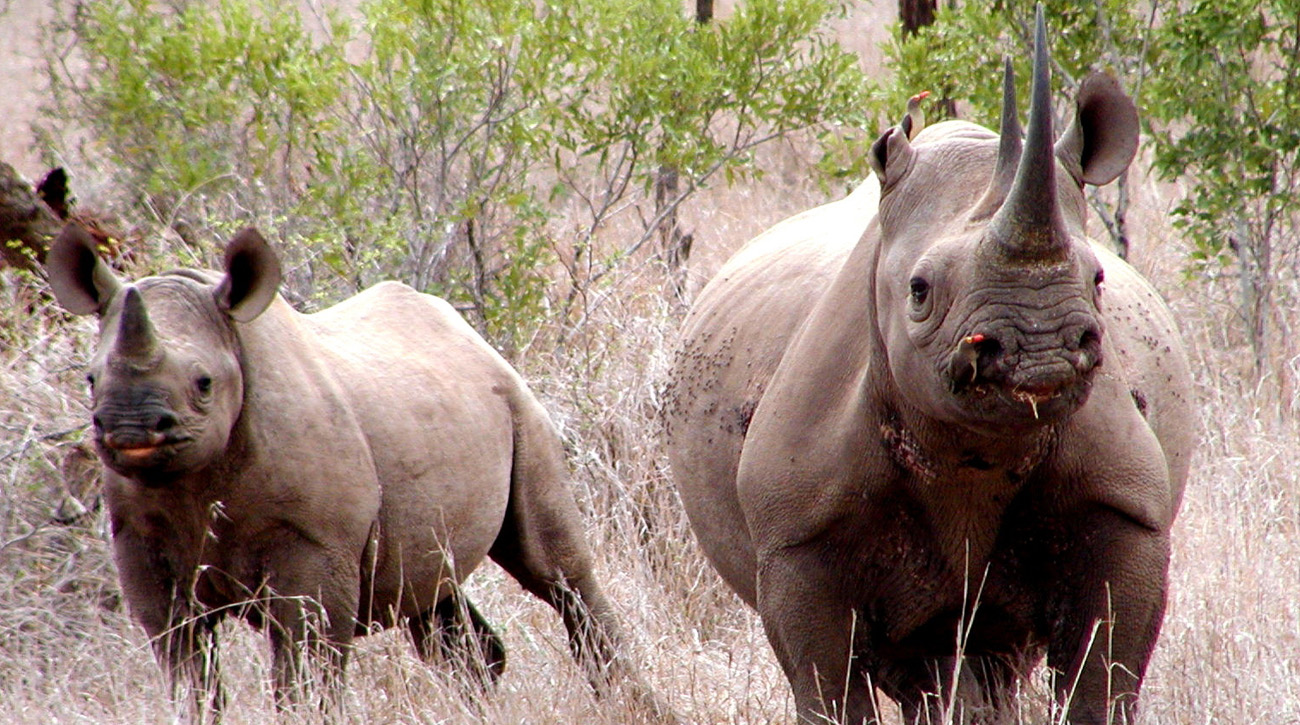With only 5,000 animals left in the wild today, the black rhinoceros is a critically endangered species. Currently, fewer than 100 black rhinos live in zoos across North America, acting as a protection against extinction. However, these animals in captivity face their own threats to survival, experiencing diseases that are not generally found in their wild counterparts.
Studies suggest differences in the microbiome – the collection of microbes living in and on the body - may influence the health of mammals, including rhinos. An international team of researchers, led by Keith Crandall, PhD, director of the Computational Biology Institute (CBI) at the Milken Institute School of Public Health (Milken Institute SPH) and Budhan Pukazhenthi, PhD, a researcher at Smithsonian’s National Zoo and Conservation Biology Institute, compared the gut microbiomes of wild and captive black rhinos. Keylie Gibson, a PhD student at CBI, served as lead author of the study.
The researchers extracted DNA from fecal samples taken from wild and captive black rhinos. They sequenced and analyzed the metagenomic DNA samples and found differences in microbial communities between captive and wild black rhinos. The researchers found rhinos kept at zoos and similar institutions had gut microbes similar to those found in other domesticated animals and appeared to lack macro and micronutrients that play a key role in good health.
“It’s exciting to see the application of one of our bioinformatics tools to gain insights into health and nutrition that will really help lessen the extinction risk for this critically endangered species,” Crandall said.
The researchers offered recommendations to improve the gut microbiome of captive rhinos so that it better reflects their wild counterparts, including changing the rhinos’ diet to better reflect food consumed in the wild.
The paper, “Gut microbiome differences between wild and captive black rhinoceros – implications for rhino health” was published online May 28 in the journal Nature Scientific Reports.


